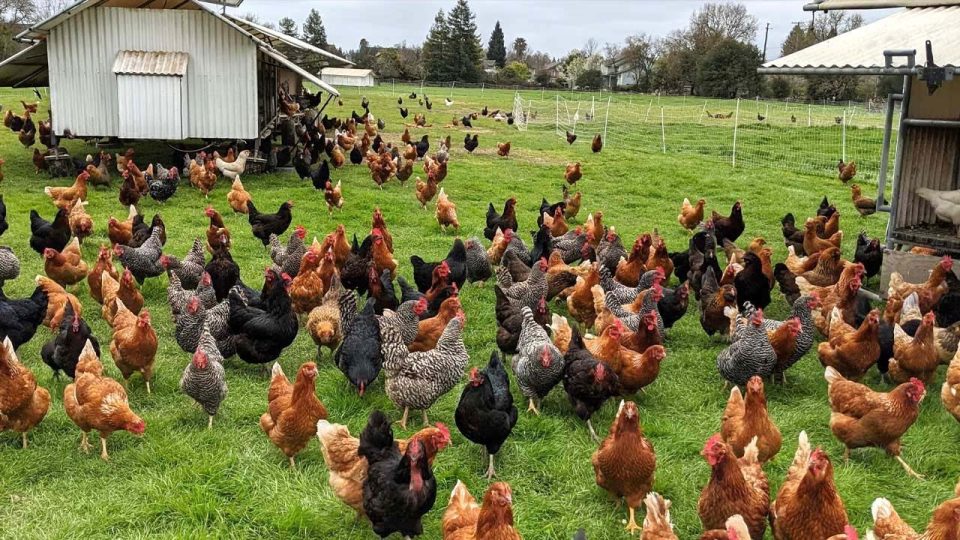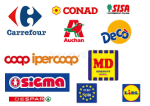How Supermarkets are Reducing Antibiotic Use in Chicken Through the European Chicken Commitment
The European Chicken Commitment (ECC) is a major initiative that is helping to reduce the use of antibiotics in chicken production. The ECC is a voluntary agreement between supermarkets and food companies to reduce the use of antibiotics in chicken production. The commitment was launched in 2018 and is supported by a number of major European supermarkets, including Tesco, Sainsbury’s, Aldi, Lidl, and Marks & Spencer.
The ECC sets out a number of targets for supermarkets and food companies to reduce the use of antibiotics in chicken production. These targets include reducing the use of antibiotics in chicken production by 50% by 2020, and eliminating the use of antibiotics for growth promotion by 2022. The ECC also sets out a number of other measures to reduce the use of antibiotics in chicken production, such as improving animal welfare standards, increasing transparency, and providing better information to consumers.
The ECC is helping to reduce the use of antibiotics in chicken production by encouraging supermarkets and food companies to adopt more sustainable practices. By setting targets and providing guidance, the ECC is helping to ensure that supermarkets and food companies are taking steps to reduce the use of antibiotics in chicken production.
The ECC is also helping to raise awareness of the issue of antibiotic use in chicken production. By providing information to consumers, the ECC is helping to educate people about the importance of reducing the use of antibiotics in chicken production. This is helping to create a demand for chicken that has been produced without the use of antibiotics, which is helping to drive down the use of antibiotics in chicken production.
Overall, the European Chicken Commitment is helping to reduce the use of antibiotics in chicken production. By setting targets and providing guidance, the ECC is helping to ensure that supermarkets and food companies are taking steps to reduce the use of antibiotics in chicken production. The ECC is also helping to raise awareness of the issue of antibiotic use in chicken production, which is helping to create a demand for chicken that has been produced without the use of antibiotics.
The Benefits of Supermarkets Joining the European Chicken Commitment for Consumers
The European Chicken Commitment (ECC) is a landmark agreement between supermarkets and animal welfare organizations to improve the welfare of chickens raised for meat in Europe. By joining the ECC, supermarkets are taking a major step towards improving the lives of millions of chickens. This commitment has numerous benefits for consumers, including improved animal welfare, better food safety, and more sustainable production.
First, joining the ECC will improve the welfare of chickens raised for meat in Europe. The ECC sets out a series of standards that must be met in order to ensure that chickens are raised in a humane and ethical manner. These standards include providing chickens with more space, better lighting, and enrichment materials, as well as ensuring that they are not subjected to painful procedures such as beak trimming. By joining the ECC, supermarkets are taking a major step towards improving the welfare of chickens raised for meat in Europe.
Second, joining the ECC will improve food safety for consumers. The ECC sets out a series of standards that must be met in order to ensure that chickens are raised in a safe and hygienic environment. These standards include providing chickens with clean and hygienic housing, as well as ensuring that they are not subjected to overcrowding or other conditions that could lead to the spread of disease. By joining the ECC, supermarkets are taking a major step towards improving food safety for consumers.
Finally, joining the ECC will help to make the production of chicken meat more sustainable. The ECC sets out a series of standards that must be met in order to ensure that chickens are raised in an environmentally friendly manner. These standards include providing chickens with access to outdoor areas, as well as ensuring that they are not subjected to intensive farming practices that can lead to environmental damage. By joining the ECC, supermarkets are taking a major step towards making the production of chicken meat more sustainable.
In conclusion, joining the European Chicken Commitment is a major step towards improving the welfare of chickens raised for meat in Europe, as well as improving food safety and making the production of chicken meat more sustainable. By joining the ECC, supermarkets are taking a major step towards improving the lives of millions of chickens, as well as providing consumers with a safer and more sustainable product.
The Impact of Supermarkets Joining the European Chicken Commitment on Animal Welfare
The European Chicken Commitment (ECC) is a landmark agreement between supermarkets and animal welfare organizations to improve the welfare of chickens raised for meat in Europe. The agreement, which was signed in 2019, sets out a series of commitments to improve the welfare of chickens, including reducing stocking density, providing enrichment, and improving the quality of feed.
The impact of supermarkets joining the ECC on animal welfare is significant. By signing the agreement, supermarkets are committing to making changes to their supply chains that will improve the welfare of chickens. These changes include reducing stocking density, providing enrichment, and improving the quality of feed. These changes will help to reduce the stress and suffering of chickens, as well as improve their overall health and wellbeing.
The ECC also sets out a series of targets for supermarkets to meet in order to ensure that the welfare of chickens is improved. These targets include reducing stocking density to a maximum of 30kg/m2, providing enrichment such as perches and straw bales, and ensuring that feed is of a high quality. By meeting these targets, supermarkets are helping to ensure that chickens are kept in better conditions and are less likely to suffer from stress and disease.
In addition to improving the welfare of chickens, the ECC also has a positive impact on the environment. By reducing stocking density and improving the quality of feed, supermarkets are helping to reduce the amount of waste produced by their supply chains. This in turn helps to reduce the environmental impact of chicken production, as well as helping to reduce the amount of resources used in the production process.
Overall, the impact of supermarkets joining the ECC on animal welfare is significant. By signing the agreement, supermarkets are committing to making changes to their supply chains that will improve the welfare of chickens. These changes include reducing stocking density, providing enrichment, and improving the quality of feed. In addition, the ECC also has a positive impact on the environment, as it helps to reduce the amount of waste produced by the supply chain. As such, the ECC is an important step forward in improving the welfare of chickens in Europe.



